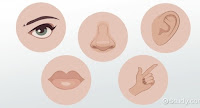LOVE IS BEST DESCRIBED THAN DEFINED
Love defined (?)
Love
is probably the most debated, discussed and analyzed word in the world, but
still remains the least understood word in the world. It is everywhere – in our
songs, in our books, on our television screens, on the radios and in the
movies. It is always on our tongues, in our thoughts and always a part of our
conversations.
Yet,
for all these debates and discussions and analysis, many of us don't know and
understand the true nature love.
Everyone
tries to define love in his or her own way, but the definitions are always
incomplete.
For over eight years now that I have deliberately and diligently studied
about love, I have been asked countless times to define love. Well, I have always defined
love as “your thoughts, feelings, sayings and actions that are in the best
interest of others”; but always after this definition, I still see it as
incomplete.
As
hard as one will try to define love, something is always missing in the
definition.
In
first Corinthians 13:1-3, apostle Paul listed a number of good things a person
can do or possess in life: speak in tongues of men and of angels; have the gift
of prophecy, understand all mysteries, have all knowledge and great faith; give
all goods to feed the poor, and give body (life) to be burned.
Yet
he concluded, “But if I have no love, I am nothing.”
So,
what is love?
Some
will say, “Love is about showing concern”; but how do you explain the many
hungry people whom Jesus did not feed? Does it mean he didn’t love them?
Another
will say, “Love is about giving”; but how do you explain Jesus’ rebuke of Judas
for suggesting that the precious ointment Mary had poured upon Jesus could have
been sold and the proceeds given to the poor?
Others
will say, “Love is speaking kindly and pleasantly,’’ but how do you explain the
harsh and rebuking words of Jesus to the Pharisees, and sometimes to His
disciples?
There
is more to love than we often think. It will not give to you when it knows it is
not what you need. It is not blind to shut its eyes to the faults of its loved ones.
It will rebuke and discipline when the need arises. To give just because it is requested
and to shut its eyes to all faults to evade the unpleasantness of the discipline
is to harm the loved one.
Love is best described
I
always say that "Love is not self-defining, but best described."
Love
is a composite subject. It is like a white light which when passed through a
prism, splits into its component rainbow-like series of colours. It is like a
diamond with many faces; sparkling differently whichever way it is turned. It
is displayed in many different habits beautiful like the colours of the
rainbow.
Describing love in 1 Corinthians 13, what is known as "The Love Chapter" of the bible, the apostle Paul said, “Love suffers long and is kind; love does not envy; love vaunts not itself, and is not puffed up; does not behave itself unseemly/rudely, does not seek its own; keeps no records of wrongs; is not easily provoked; rejoices not in iniquity, but rejoices in the truth; bears, believes, hopes, and endures all things” — these habits make up the supreme gift – Love!!!
Describing love in 1 Corinthians 13, what is known as "The Love Chapter" of the bible, the apostle Paul said, “Love suffers long and is kind; love does not envy; love vaunts not itself, and is not puffed up; does not behave itself unseemly/rudely, does not seek its own; keeps no records of wrongs; is not easily provoked; rejoices not in iniquity, but rejoices in the truth; bears, believes, hopes, and endures all things” — these habits make up the supreme gift – Love!!!
Love Demonstrated
Anyone who professes to live a life of Love would have to learn to display the radiant habits of love. Love is many-faceted and one cannot call himself a person of love until he has learnt to live all the habits of love (which we will look at in the next series of articles). The demonstration of love is unconditional. It is a choice based on a deliberate decision.
A group of college students toured the slums of a city, and one of the girls, seeing a little girl playing in the dirt, asked a guide, "Why doesn't her mother clean her up?"
"Madam," the
guide replied, "that girl's mother probably loves her, but she doesn't hate
dirt. You hate dirt, but you don't love the girl enough to go down there and
clean her up. Until hate for dirt and
love for that child are in the same person, that little girl is likely to
remain as she is." Such is the nature of the brilliance of God-like
love, Agape love. It is a
many-splendored thing.
References
- Reduce Me to Love by Joyce Meyer
- The Law of Love and Love as a Law by Mark Hopkins




Comments